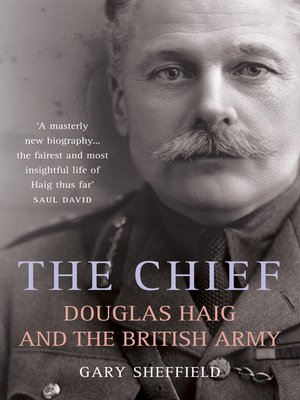
Sign up to save your library
With an OverDrive account, you can save your favorite libraries for at-a-glance information about availability. Find out more about OverDrive accounts.
Find this title in Libby, the library reading app by OverDrive.



Search for a digital library with this title
Title found at these libraries:
| Library Name | Distance |
|---|---|
| Loading... |
Douglas Haig is the single most controversial general in British history. In 1918, after the armies he commanded had played such an important part in helping to win the First World War, he was feted as the saviour of his country. On his death in 1928 he was mourned as a national hero. But within ten years his reputation was in ruins. It has never fully recovered. His name has become a byword for military incompetence, a callous and brutal ‘donkey’ who led the ‘lions’ of the British Army to their deaths in the trenches. Haig has been mercilessly lampooned by TV shows such as Blackadder and even recent academic studies depict him as a serial blunderer who learned nothing from his mistakes. In this fascinating biography, Professor Gary Sheffield reassesses Haig’s reputation, and demonstrates the crucial role he played in leading British forces to victory in the First World War. Using extensive research into primary sources, many of which have been ignored or misinterpreted by other historians, he shows how Haig’s experiences on the Western Front made him a highly effective commander. He also assesses his critical role in preparing the army for war and transforming the shambolic amateur force of the Somme in 1916 to the victorious army of 1918. As well as covering his stormy relations with politicians like Churchill and Lloyd George, he reveals important details about Haig’s character and personal life, and his key role in post-war Britain, using the influence he wielded as a leader of ex-servicemen to help secure the peace. This is no whitewash, however: Haig’s mistakes did have bloody consequences, and when he deserves criticism, the book does not spare him.







